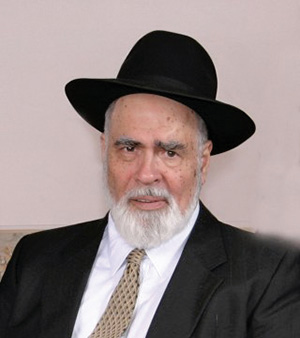
The first seven makos took a heavy toll on Mitzrayim. When Moshe Rabbeinu gives Pharaoh the warning of the upcoming eighth plague of arbeh, locusts, the members of Pharaoh’s household decide that “enough is enough.” They insist that the king relent: “Send them out already and let them worship their God before all is lost!”
In the face of their protest, Pharaoh begins to cave in and summons Moshe back. “Alright, go worship your deity. But mi vami haholchim? Which of you are going?” Moshe replies definitively, “Binareynu u’vizkeineinu neileich—With our youth and our elders we shall go, with our sons and our daughters, with our sheep and our cattle, for it is a festival of Hashem for us!” (Shemos 10:8-9)
Pharaoh refuses to hear of it. “If you are going to worship, then let the men go. It’s not safe to take women and children into the wilderness. It’s either the men alone or nothing!”
My son, Rav Chaim Zvi Senter, rosh yeshiva of Yeshivas Aderes HaTorah in Yerushalayim, asked a compelling question. Pharaoh was a rasha, a murderer who did not hesitate to slaughter newborn infants in order to bathe in their blood! Why is he suddenly so “concerned” for the welfare of the women and children? Why does he refuse to allow them to endanger themselves?
His answer is based on thoughts from Rav Reuven Grozovsky. Pharaoh knew the secret of Jewish survival, the answer to the enigma of how we have endured through the millennia of persecution. Jewish life is not relegated to the elders, to the veteran scholars; we need the youthful generation to whom the rabbis will pass on the mesorah. If there are teachers, but no one to receive their message, then Yiddishkeit will die out. Pharaoh wanted to keep the children in Mitzrayim, dooming the future and destiny of klal Yisrael. The secret of Jewish survival is the harmonious blend of old and young. We will settle for nothing less.
Taking Us By the Hand
The first words of Parshas Bo clues us in to the other secret of our survival. Hashem tells Moshe, “Bo el Pharaoh, go to Pharaoh.” (Shemos 10:1) The language in the pasuk is a bit of an anomaly. The word “bo” generally means “come.” If I am standing here and I want you to move closer, I would say “bo.” The word used for “go” is “leich.” Therefore, if Hashem wants to send Moshe from here to there, why didn’t He say “Leich el Pharaoh”?
Rav Chanoch Tzvi of Bondin, the son-in-law of the Sfas Emes, was bothered by this very question. As he writes that he asked his wife, Faige (daughter of the Sfas Emes) this question. She answered astutely that Hashem realized how unsure Moshe felt about carrying out this task. Moshe had a speech defect and he was neither an accomplished politician nor a seasoned diplomat. So Hashem reassured him and said, “Bo el Pharaoh, Come to me and I will go with you to Pharoah’s inner chambers. I will be there to assist you.” Whenever a person embarks on a Divine mission, he is not alone; Hashem is with him at every moment.
Similarly, while reading this vort to my own wife, after I stated the kasha, she guessed the correct teretz before I could even read it! (Her paternal grandfather, Rabbi Dovid Rosenbaum, was a talmid of the Sfas Emes. Perhaps her intuition came from Gerrer chassidus inherited in her spiritual bloodline!)
My wife’s father, Rabbi Aaron Dov Rosenbaum, founder of RYNJ, lived by the following principle whenever faced with any difficult task. Whenever asked, “How can we be so ambitious? How can we undertake such a difficult goal to accomplish, even one that’s for the benefit of Torah?” He would say, “If you’re doing something l’shem shamayim, you’re guaranteed siyata d’shamaya.”
That is the difference between human shlichus and divine shlichus. When a person appoints someone as his agent, the first person disappears and the agent is on his own. But when Hashem dispatches someone on a mission, He never leaves his side. He is always there, every step of the game, to give him support.
With these two secrets of survival—the unity of our generations and the ever-present support of Hashem in our mission—we hope that this year’s celebration of geulas Mitzrayim will be the harbinger of the final geulah, bimheyra b’yameinu. Amein.
By Rabbi Zecharia Senter
Rabbi Zecharia Senter is the founder and president of KOF-K Kosher Supervision, one of the largest kosher certification agencies serving the Jewish community worldwide. He was a talmid of Rav Yosef Dov Soloveitchik, z”l, and received semicha from Yeshiva University’s RIETS.











